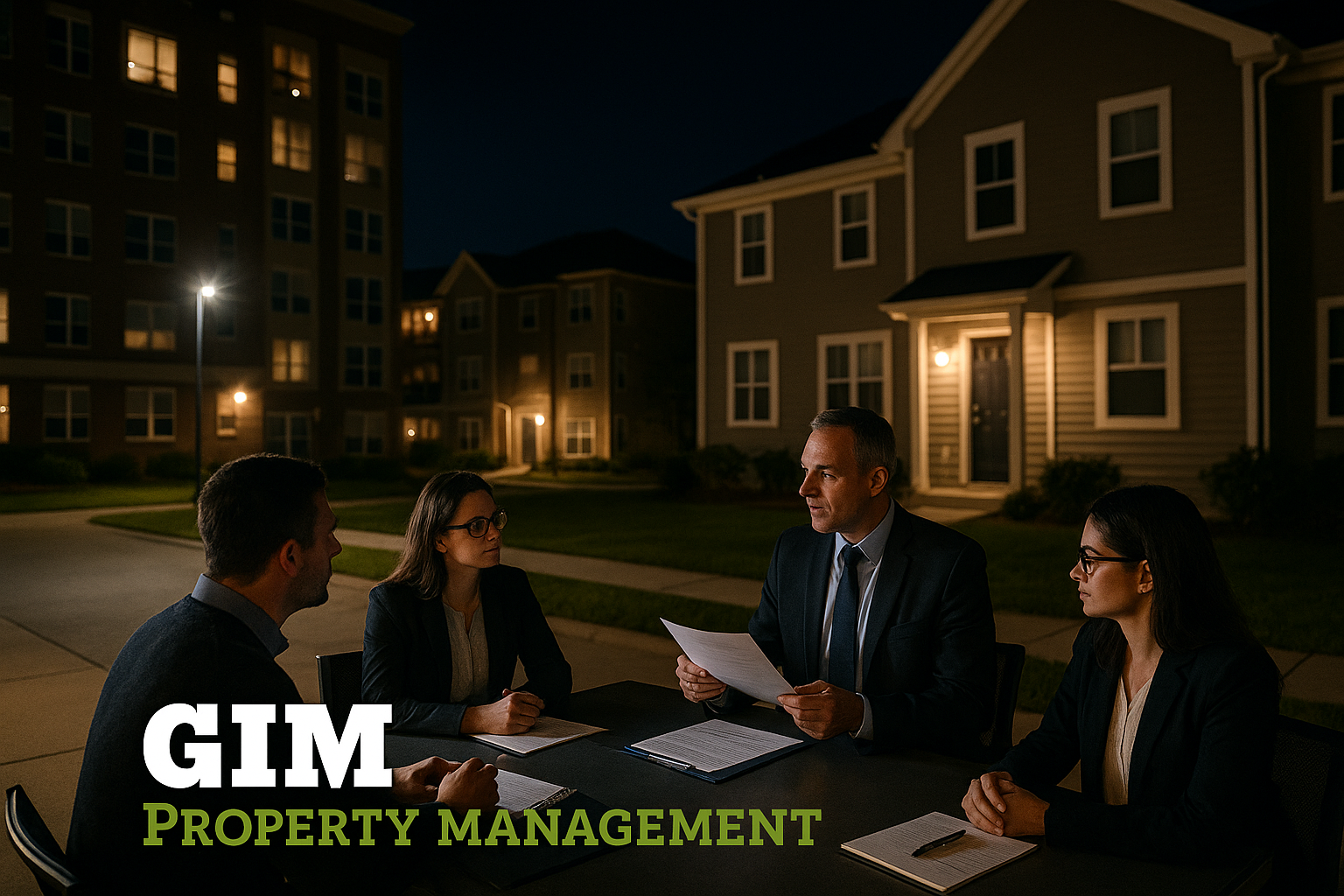Reach Out for Property Insights
Discover how effective emergency response planning can strengthen financial resilience for Massachusetts HOAs and rental properties.

Discover how effective emergency response planning can strengthen financial resilience for Massachusetts HOAs and rental properties.

Ever wondered how effective emergency response planning can fortify the financial resilience of your HOA or rental property? At GIM Property Management, we believe proactive emergency planning isn't just about safety—it's a cornerstone of financial sustainability. Start by auditing your current emergency response plan: ensure it's not only comprehensive but also regularly updated. Consider conducting annual safety drills and reviewing insurance policies to ensure they're aligned with potential risks. By preparing for unexpected events, you protect not only your community but also your financial assets.
Join us in discussing how strategic emergency preparedness can save you money and foster trust among residents. What steps have you taken to enhance your property's emergency response plan?
Emergency response planning involves creating a strategic approach to prepare for and mitigate the impact of unexpected events, such as natural disasters or security threats. It is crucial for the safety of residents and the protection of financial assets within HOAs and rental properties. Effective planning minimizes risks and ensures quick recovery, thereby maintaining the property's value and residents' trust.
Several key factors contribute to why this can be significant:
Understanding potential risks specific to Massachusetts, such as nor'easters or flooding, helps tailor the emergency response plan effectively.
Ensuring adherence to local and state regulations not only avoids penalties but also ensures community safety.
Allocating resources efficiently, including manpower and financial reserves, strengthens response capabilities.
Educating residents about emergency procedures fosters cooperation and swift action during emergencies.
Effective management is crucial in maintaining the emergency preparedness of a property. It involves understanding the age, condition, and operational needs of the property to implement an effective emergency response plan.
Professional management provides the expertise and oversight needed to maintain comprehensive emergency preparedness.
Regular Audits
Insurance Review
Community Engagement
Supplier Partnerships
Technology Utilization
Training Programs
Resource Optimization
Maintenance Scheduling
Financial Planning
Partnerships with Authorities
Need Help Managing Your Budget or Strategy? Contact GIM Property Management for expert guidance on enhancing your property's emergency response plan and ensuring financial sustainability. Our team is ready to assist you in creating a robust strategy tailored to your community's unique needs.
Emergency response planning is not just a safety measure; it's a strategic investment in the financial resilience of your property. By understanding the risks, complying with regulations, and engaging your community, you can reduce potential costs and build trust. Transparency, ongoing education, and professional management are key to maintaining a comprehensive plan. Implementing these practical steps ensures that your property is prepared for any eventuality.
Request a consultation with GIM Property Management to strengthen your emergency response planning and safeguard your property's future.
Contact us to enhance your property's emergency preparedness and financial stability.
Contact Us